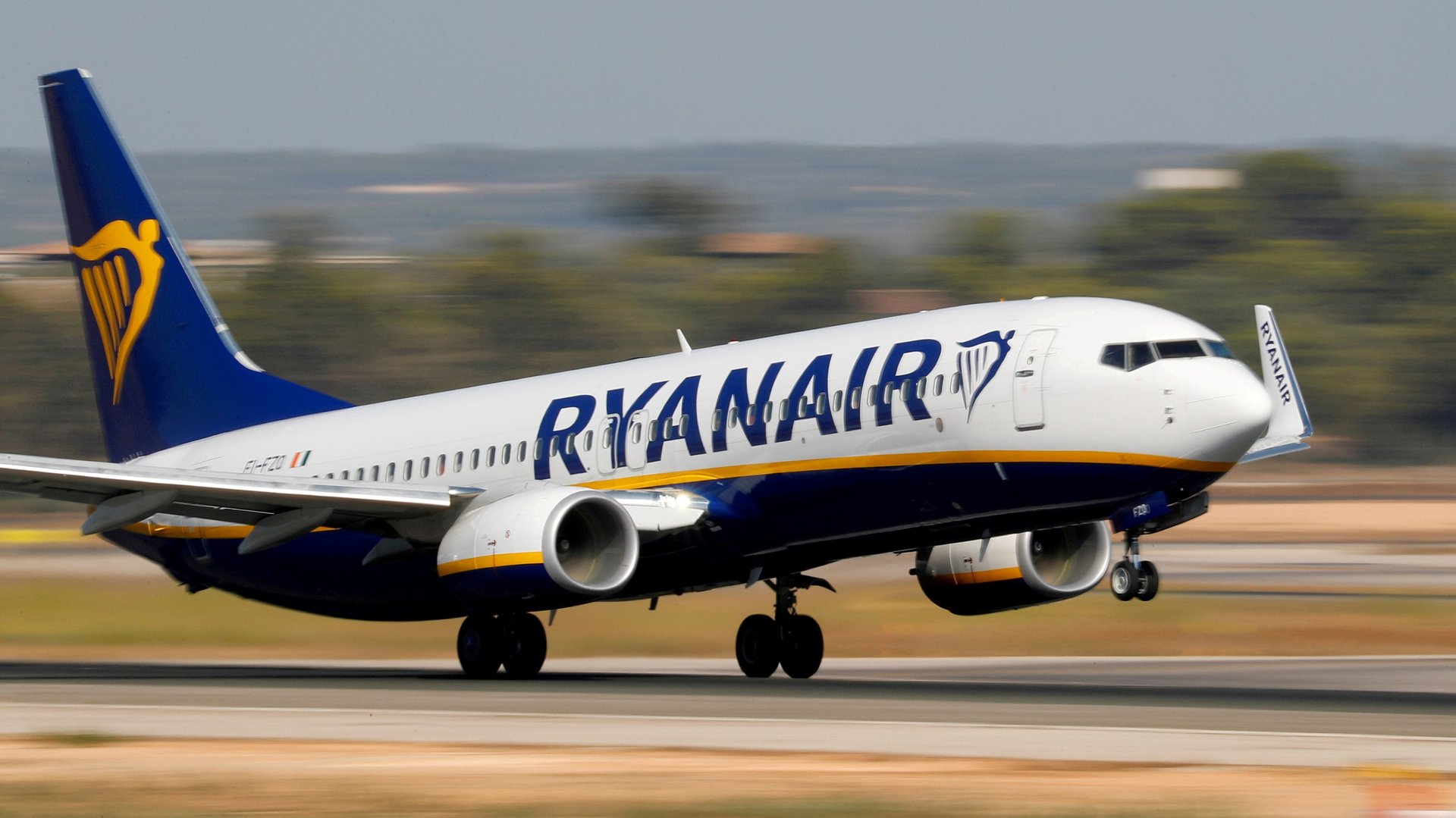Why Ryanair may delist from the London Stock Exchange
As Ryanair debates whether to end its stock listing in London, it raises a familiar question: Is the budget airline’s potential departure a one-off? Or is it a sign that the EU is steadily stripping away pieces of Britain’s financial sector?


As Ryanair debates whether to end its stock listing in London, it raises a familiar question: Is the budget airline’s potential departure a one-off? Or is it a sign that the EU is steadily stripping away pieces of Britain’s financial sector?
The Irish airline is considering whether to delist from London Stock Exchange as the volume of its share trading in the UK capital dwindles, according to a statement today. EU rules require that the bloc’s airlines are controlled and owned by EU citizens—a stipulation that has excluded UK nationals since Britain left the bloc.
If Ryanair quits its listing in London, it will still have its primary listing in Dublin on the EU-exchange Euronext, and its shares are available on Nasdaq in the US though its American Depositary Receipts (ADRs). Chief executive Michael O’Leary told the Financial Times that the delisting from LSE was an “inevitability” that would probably happen in the next six months.
Although some aspects of Ryanair’s situation are specific to airlines, it’s far from the only company whose share trading has left the UK since Brexit. When the UK’s transition agreement with the EU expired in December 2020, some €6 billion ($7 billion) of daily trading in EU stocks left London overnight for markets across the Channel.
The EU’s politicians and officials, meanwhile, have taken aim at Britain’s financial industry ever since the Brexit vote: French president Francois Hollande took his first shot at the City of London almost immediately after referendum results in 2016, and the EU has continued pressing its domestic banks to move vital euro-denominated business out of the UK. The European Central Bank is reportedly urging financial companies to relocate staff that services EU clients to the Continent.
The UK is still a heavyweight in global finance, and its losses to that sector have, so far, been far less than some feared. British officials have been reviewing ways to make its markets for IPOs and share trading more competitive, from efforts to attract SPACs (Special Purpose Acquisition Companies) to dual-class listings. The UK has a thriving fintech sector and its tech companies have attracted record amounts of venture capital.
But Ryanair’s debate over its listing on LSE makes it clear that the EU’s use of its own rules to claw financial business away from the UK is working. The question is whether Britain will succeed in countering those attacks.